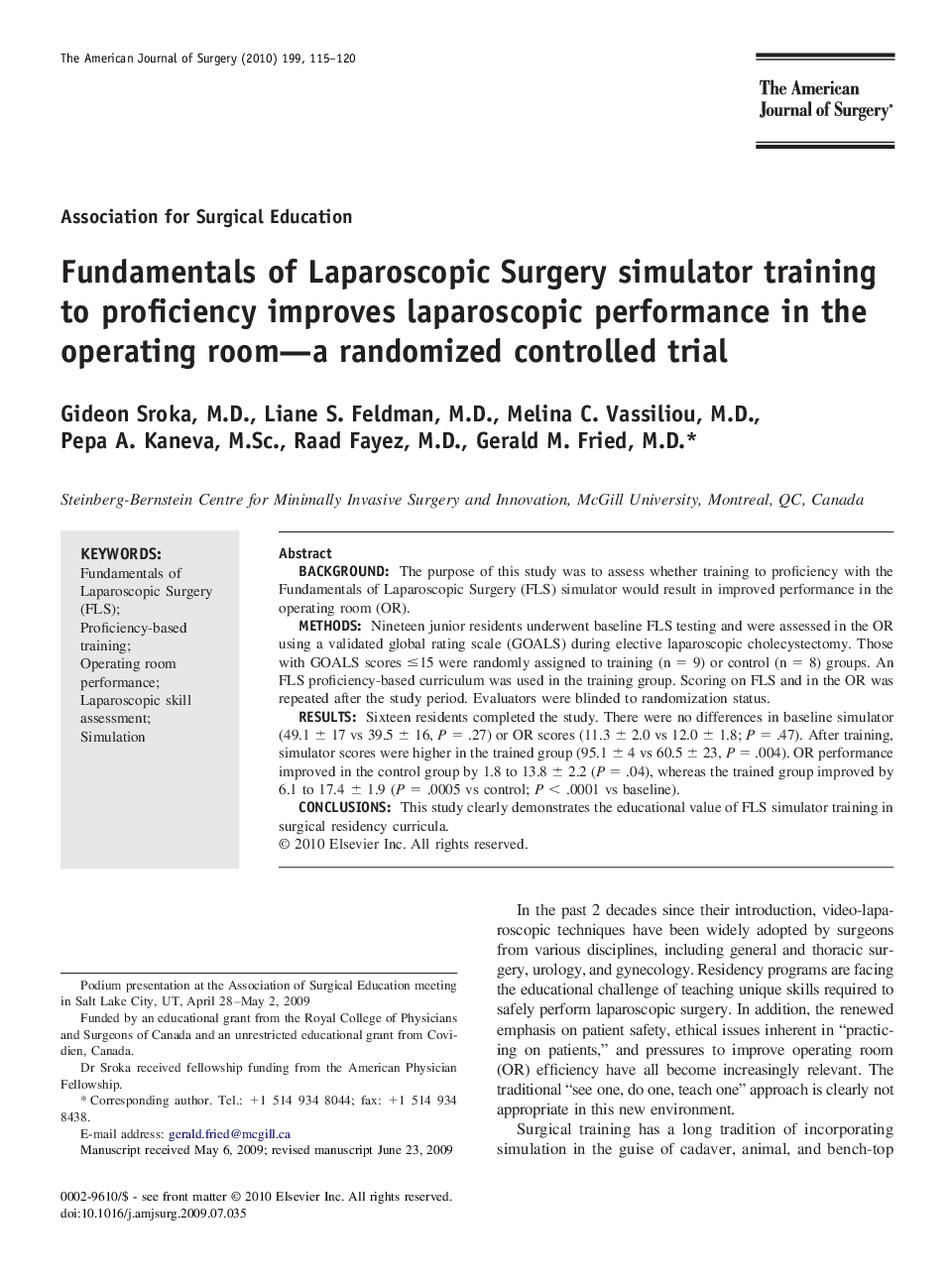| Article ID | Journal | Published Year | Pages | File Type |
|---|---|---|---|---|
| 4280447 | The American Journal of Surgery | 2010 | 6 Pages |
BackgroundThe purpose of this study was to assess whether training to proficiency with the Fundamentals of Laparoscopic Surgery (FLS) simulator would result in improved performance in the operating room (OR).MethodsNineteen junior residents underwent baseline FLS testing and were assessed in the OR using a validated global rating scale (GOALS) during elective laparoscopic cholecystectomy. Those with GOALS scores ≤15 were randomly assigned to training (n = 9) or control (n = 8) groups. An FLS proficiency-based curriculum was used in the training group. Scoring on FLS and in the OR was repeated after the study period. Evaluators were blinded to randomization status.ResultsSixteen residents completed the study. There were no differences in baseline simulator (49.1 ± 17 vs 39.5 ± 16, P = .27) or OR scores (11.3 ± 2.0 vs 12.0 ± 1.8; P = .47). After training, simulator scores were higher in the trained group (95.1 ± 4 vs 60.5 ± 23, P = .004). OR performance improved in the control group by 1.8 to 13.8 ± 2.2 (P = .04), whereas the trained group improved by 6.1 to 17.4 ± 1.9 (P = .0005 vs control; P < .0001 vs baseline).ConclusionsThis study clearly demonstrates the educational value of FLS simulator training in surgical residency curricula.
